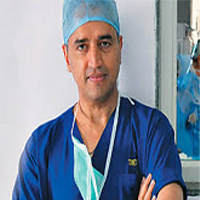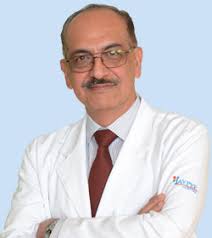Coronary Angiography IN INDIA
Coronary angiography is a crucial diagnostic procedure that provides a detailed view of coronary arteries, enabling the identification of blockages or narrowing that could lead to severe cardiac conditions. India, known for its advanced healthcare system and cost-effective solutions, has become a leading destination for coronary angiography.
This guide delves into all aspects of the procedure, including its purpose, preparation, execution, post-care, costs in India, and why Al Afiya MediTour is a trusted partner for this life-saving treatment.
Introduction:
The heart is often referred to as the engine of the body, and maintaining its health is of paramount importance. Coronary artery disease (CAD) is one of the leading causes of morbidity and mortality worldwide. Early detection of arterial blockages can prevent severe outcomes like heart attacks or heart failure. Coronary angiography serves as a powerful diagnostic tool in the fight against heart disease. This article will explain the nuances of the procedure, its benefits, and why India is a preferred choice for international patients seeking cost-effective yet high-quality medical care.
What is Coronary Angiography?
Coronary angiography is a minimally invasive diagnostic test that uses X-ray imaging to examine the coronary arteries. During the procedure, a special dye is injected into the bloodstream, which highlights the arteries on an X-ray, allowing doctors to identify blockages, narrowings, or other abnormalities.
Key Features of Coronary Angiography
- Performed in a catheterization lab (cath lab) equipped with advanced imaging systems.
- Commonly combined with other procedures like angioplasty if treatment is required.
- Provides essential insights into a patient’s cardiac health.
Coronary angiography has revolutionized the diagnosis of heart diseases, offering precision and clarity that enables timely intervention.
Why is Coronary Angiography Done?
Doctors recommend coronary angiography for various reasons. The most common ones include:
- Diagnosing Coronary Artery Disease: To confirm the presence and severity of CAD.
- Evaluating Symptoms: Unexplained chest pain, breathlessness, or abnormal results from stress tests often prompt angiography.
- Treatment Planning: To decide on the next course of action, such as angioplasty or bypass surgery.
- Monitoring Post-Surgery: To assess the success of previous treatments or surgeries.
What are Symptoms That May Indicate the Need for Coronary Angiography?
Recognizing the signs of heart issues early can save lives. Some symptoms that warrant a coronary angiography include:
- Persistent Chest Pain (Angina): Chest discomfort, especially during physical exertion, can indicate reduced blood flow to the heart.
- Shortness of Breath: Difficulty in breathing or unexplained breathlessness during daily activities is a red flag.
- Irregular Heartbeats (Arrhythmias): Palpitations or rapid heart rates can suggest underlying cardiac problems.
- Dizziness and Fainting: These could be signs of reduced oxygen supply to the brain due to cardiac issues.
- Extreme Fatigue: Persistent fatigue without a known cause may indicate insufficient blood flow to the heart.
If you or someone you know experiences these symptoms, consulting a cardiologist is essential.
What is the Preparation Before Coronary Angiography?
Preparation plays a crucial role in ensuring the safety and accuracy of the procedure.
Steps for Pre-Procedure Care
- Medical History and Allergies: Inform your doctor about any medical conditions, allergies (especially to iodine or contrast dyes), and ongoing medications.
- Fasting: Avoid eating or drinking for at least 6-8 hours before the procedure.
- Diagnostic Tests: You may undergo blood tests, an electrocardiogram (ECG), or echocardiography as part of the preparation.
- Medication Adjustment: Your doctor may advise you to stop taking certain medications, like blood thinners, temporarily.
- Comfortable Clothing and Arrangements: Wear loose-fitting clothes and arrange for someone to take you home after the procedure.
Proper preparation minimizes risks and ensures the procedure is conducted smoothly.
The Coronary Angiography Procedure
Understanding what happens during the procedure can alleviate anxiety for many patients.
Step-by-Step Process
- Admission and Preparation: Upon arrival at the hospital, patients are prepped by nurses. IV lines are inserted, and vital signs are monitored.
- Anesthesia: Local anesthesia is administered to numb the catheter insertion site, usually in the arm or groin.
- Catheter Insertion: A thin, flexible catheter is gently guided through the blood vessels to the coronary arteries using live X-ray imaging.
- Dye Injection: A contrast dye is injected into the arteries, making them visible on the X-ray screen.
- Imaging: Detailed images of the coronary arteries are captured, revealing any blockages or abnormalities.
- Completion: The catheter is removed, and the insertion site is bandaged.
The procedure typically takes 30-60 minutes and is performed under careful monitoring.
What are the Costs of Coronary Angiography in Different Cities in India?
The cost of coronary angiography in India varies across cities depending on factors like hospital infrastructure, the expertise of the medical staff, and the type of facility. Below is a detailed table showcasing the average cost in major Indian cities:
| City | Cost Range (INR) | Cost Range (USD) | Remarks |
| Delhi | ₹15,000 – ₹40,000 | $180 – $480 | Leading hospitals with advanced cardiac units. |
| Mumbai | ₹18,000 – ₹50,000 | $220 – $600 | High-end facilities with experienced doctors. |
| Bangalore | ₹12,000 – ₹35,000 | $145 – $420 | Affordable options with state-of-the-art care. |
| Chennai | ₹12,000 – ₹30,000 | $145 – $360 | Renowned for quality cardiac care. |
| Hyderabad | ₹10,000 – ₹28,000 | $120 – $340 | Cost-effective options with top-rated hospitals. |
| Kolkata | ₹8,000 – ₹25,000 | $100 – $300 | Budget-friendly with reliable care facilities. |
| Pune | ₹12,000 – ₹35,000 | $145 – $420 | Offers quality care at competitive rates. |
| Ahmedabad | ₹10,000 – ₹30,000 | $120 – $360 | Affordable care with well-equipped hospitals. |
| Jaipur | ₹10,000 – ₹25,000 | $120 – $300 | Trusted for economical yet quality treatment. |
| Lucknow | ₹8,000 – ₹20,000 | $100 – $240 | Low-cost cardiac care options available. |
- Metropolitan cities like Mumbai and Delhi tend to have higher costs due to their premium healthcare facilities and renowned specialists.
- Cities like Kolkata, Jaipur, and Lucknow offer more budget-friendly options without compromising on the quality of care.
- The costs generally include the procedure, diagnostic tests, and basic hospital charges, but premium hospitals may have additional charges for post-procedure care.
What are the Factors Affecting the Cost of Coronary Angiography in India?
The cost of coronary angiography in India varies due to multiple factors. Below is an elaborative explanation of these factors:
- Hospital Location and Reputation
- Renowned hospitals in metropolitan cities like Mumbai, Delhi, or Bangalore may charge higher due to advanced technology and experienced medical teams.
- Regional hospitals often offer lower prices but may lack cutting-edge facilities.
- Type of Facility and Services
- Premium Facilities: Hospitals offering deluxe rooms, personalized care, and additional amenities charge more.
- Standard Facilities: Basic medical care without luxury services costs less.
- Cardiologist’s Expertise
- A senior cardiologist with extensive experience might have higher consultation and procedural fees compared to a less experienced doctor.
- Diagnostic Tests and Pre-Procedural Evaluations
- Necessary tests like ECG, echocardiogram, blood tests, and stress tests add to the total cost.
- Patients with complex conditions may require additional evaluations.
- Insurance Coverage
- Patients with comprehensive health insurance policies can save significantly on out-of-pocket expenses.
- Coverage varies by insurer and policy type.
- Type of Angiography
- Conventional Angiography: Lower cost, involves standard imaging.
- CT Angiography: Slightly higher due to advanced imaging techniques.
- Patient’s Overall Health
- Patients with coexisting medical conditions may require extra monitoring and care, increasing the overall cost.
- Post-Procedural Care
- Additional costs for recovery room charges, medications, or follow-up consultations can affect the final expense.
Why Choose Al Afiya MediTour for Coronary Angiography?
When considering coronary angiography in India, Al Afiya MediTour offers unparalleled benefits:
- Access to Top Hospitals: Partnerships with leading hospitals ensure access to state-of-the-art facilities.
- Affordable Packages: Comprehensive packages include consultation, procedure, accommodation, and follow-up care.
- Expert Medical Team: Collaboration with highly experienced cardiologists ensures quality care.
- Seamless Process: From visa assistance to hospital coordination, their team ensures a hassle-free experience.
Personalized Support: Multilingual interpreters and dedicated coordinators cater to international patients’ needs.
Post-Procedure Care
Recovery is just as important as the procedure itself to ensure optimal outcomes.
Immediate Recovery
- Patients are moved to a recovery room for observation for several hours.
- Drinking plenty of water helps flush the dye from the body.
- Minor discomfort at the catheter site is normal and usually subsides within a day.
Home Care Tips
- Avoid strenuous activities for 1-2 days.
- Keep the catheter site clean and dry.
- Follow the prescribed medication regimen.
- Attend follow-up appointments for further evaluation.
Long-term care involves lifestyle changes to maintain heart health.
Top Coronary Angiography Doctors in India
The right doctor to consult for a Coronary Angiography case.
Dr. Ashok Seth
Year of experience: 40
Senior Consultant at Fortis Escorts Heart Institute, Delhi
Dr. Atul Mathur
Year of experience: 41
Executive Director and Senior Consultant at Fortis Escorts Heart Institute, Delhi
Dr. D.K. Jhamb
Year of experience: 29
Director and Senior Consultant at Shalby Sanar International Hospital, Gurgaon, India
Dr. Ganesh K. Mani
Year of experience: 37 Years of Experience
Dr. K. K. Saxena
Year of experience: 44
Consultant at Indraprastha Apollo Hospital, Delhi
Dr. Mahesh Chandra Garg
Year of experience: 49 Years of Experience
Dr. Murtaza Ahmed Chishti
Year of experience: 34 years of experience
Dr. Nikhil Kumar
Year of experience: 42
Senior Consultant at Fortis Memorial Research Institute, Gurgaon
Dr. Praveen Chandra
Year of experience: 37+ Years of Experience
Dr. Rajneesh Malhotra
Year of experience: 31+ Years of Experience
Dr. Sanjeev Chaudhary
Year of experience: 30
Chairman and Senior Consultant at Marengo Asia Hospitals Formerly W Pratiksha Hospital, Gurgaon
Dr. Sandeep Attawar
Year of experience: 22 years of experience
Dr. Udgeath Dhir
Year of experience: 18+ Years of Experience
Dr. Y K Mishra
Year of experience: 32 years of experience
Dr. T. S. Kler
Year of experience: 48
Senior Consultant at BLK Super Speciality Hospital
Looking For The Best Doctor & Hospital?
Fill up the form and get assured assitance within 24 hrs!
FAQs
- Who are the best doctors for coronary angiography in India?
- Dr. Devi Shetty: Renowned cardiologist, Narayana Health, Bangalore.
- Dr. Naresh Trehan: Medanta – The Medicity, Gurgaon, with expertise in cardiovascular surgery.
- Dr. Ashok Seth: Chairman of Fortis Escorts Heart Institute, Delhi.
- Dr. Balbir Singh: Leading interventional cardiologist at Max Healthcare, Delhi.
- What are the top hospitals in India for coronary angiography?
- Fortis Escorts Heart Institute (Delhi)
- Apollo Hospitals (Chennai, Bangalore, Hyderabad)
- Narayana Health (Bangalore)
- Medanta – The Medicity (Gurgaon)
- Max Super Speciality Hospital (Delhi)
- Is coronary angiography covered by insurance in India?
Yes, most comprehensive health insurance policies cover coronary angiography. Check your policy terms and consult with your insurer for details.
- Can international patients undergo coronary angiography in India?
Absolutely! India welcomes international patients, offering high-quality care, affordable costs, and medical visa assistance.
- What are the risks associated with coronary angiography?
Risks are minimal and include bleeding at the catheter site, allergic reactions to the dye, or rare complications like heart attack.
- How long does the coronary angiography procedure take?
The procedure usually takes 30-60 minutes, but patients may need to stay for observation for a few hours afterward.
- Is coronary angiography painful?
The procedure is minimally invasive. Local anesthesia ensures minimal discomfort at the catheter insertion site.
- How should I prepare for coronary angiography?
Follow these steps:
- Fast for at least 6 hours before the procedure.
- Inform your doctor about any allergies and medications.
- Arrange for someone to accompany you post-procedure.
- What is the recovery time after coronary angiography?
Most patients recover within 1-2 days. However, full recovery depends on the individual’s health and whether any treatment was performed during the angiography.
- Can angioplasty be performed immediately after coronary angiography?
Yes, if a blockage is detected, angioplasty or stent placement can often be performed during the same session.
- Why should I choose India for coronary angiography?
India offers world-class medical care, internationally accredited hospitals, experienced cardiologists, and cost-effective treatment options, making it a preferred destination for coronary angiography.
Get FREE Evaluation
Treatment plan and quote within within 24 hrs!
Let us help you
Get your personalized Estimate Now
Top Doctors & Surgeons in India
Best Hospitals in India
Best Treatments in India
Indian Medical Visa From
Copyright © 2025 Al Afiya Medi Tour | All Rights Reserved.
















































